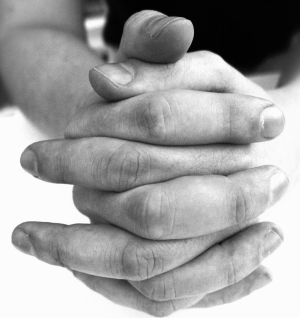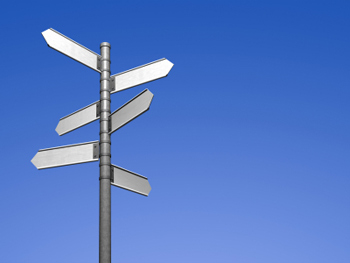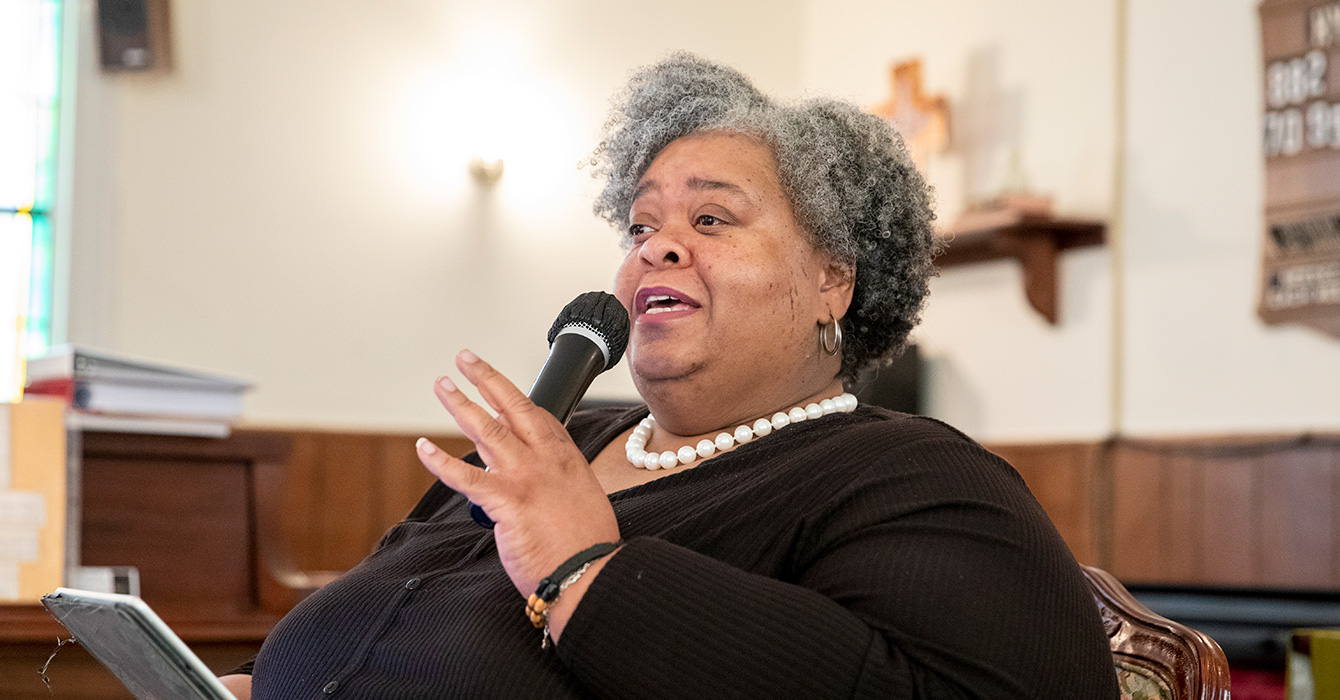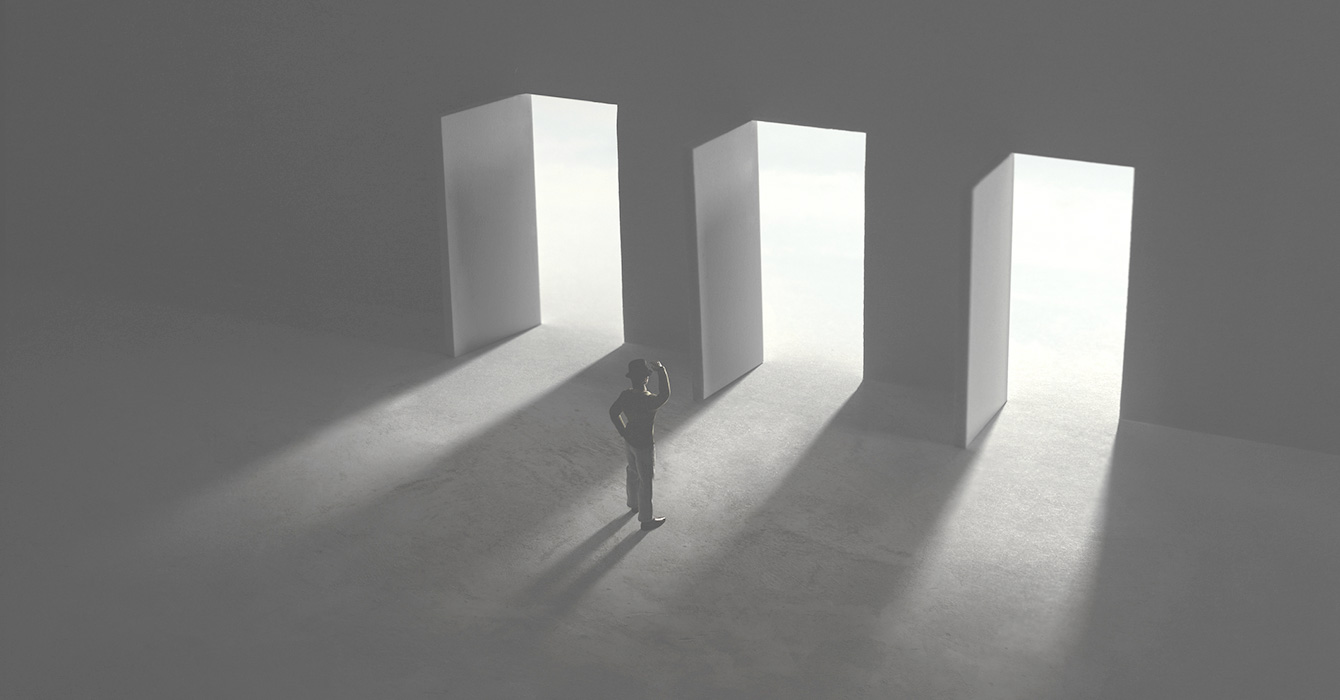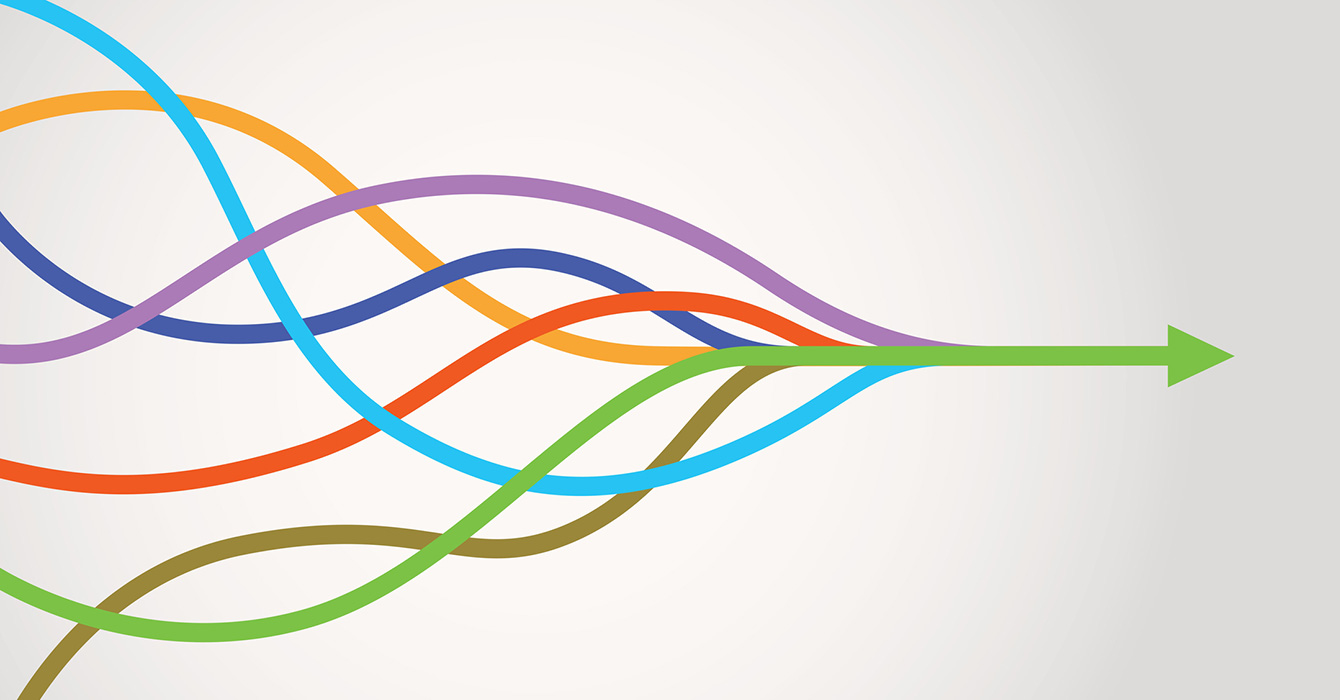Not long after the economic downturn in the late 1990s, I spoke to a conference in Silicon Valley of business educators from Jesuit universities. There had been a number of suicides in the area, and I called my talk “Dark Nights and White Knuckles: Discernment during Chaos and Rapid Change.”
The topic was not just an academic one for me: the “dark nights and white knuckles” recently had been my own. As is often the case for all of us, a personal catastrophe had suddenly pushed me toward making concrete what I only had known intellectually. Spiritual darkness and high anxiety became my teachers.
The pain of losing a friend I loved hurled me toward horizons far beyond the classroom where, for many years, I had been teaching spirituality to seminarians. It was during this time that I learned the essence of discernment.
In my talk to the business educators, I described how the spiritual practice of discernment could help people maintain clarity and balance as they negotiated the feelings of persecutory anxiety that inevitably accompany tumultuous change. As we’ve seen in the economic downturn, during such times people blame each other for failed decisions, and anxiety runs high. Distorted perception results, and it’s difficult to make any decision.
Discernment offers a way forward, I told them.
Probably a concern of most of the world’s religious traditions, discernment briefly can be described as a discipline that may involve a wide spectrum of practices, ranging from worship and prayer to reason and even physical exercise. An effective discernment practice enables people to make well-considered decisions that integrate the dimensions of their lives with a particular concern for transcendent reality. It does so, in part, by teaching them to limit their desires -- not all of them, but the inordinate ones that cloud moral and spiritual vision. The practice can harness anxiety’s energy, using it to expand both our sense of identity and our perception of options.
Christians stress that discernment goes on in intentional relation to Jesus Christ, and they insist that it participates in his cross. That means that when a decision-making process takes God and the Christian community into account, some kind of sacrifice will be required. Our hope is that discernment will draw our whole self into relationship with God -- not only our minds and hearts, but also our bodies and material possessions, our relationships and social commitments. We make better decisions about all of these when we see them as created by God and dependent on God.
In addition, discernment has a historical dimension that can offer a corrective to the rootlessness and anomie many people feel in our world today. When we practice discernment by prayerfully considering how our current situation can be illuminated by the gospel narratives, we can see ourselves as living in existential continuity with the communion of saints, our ancestors in the faith who also practiced forms of discernment.
In recent years, the practice of discernment has extended beyond the church to include people in the corporate world, in politics, academe, medicine and technology.
Methods for engaging in discernment vary, depending on the context and the matter to be discerned. The most comprehensive and effective discernment process I’ve witnessed is that of Ascension Health in St. Louis, which runs the largest Catholic and the largest nonprofit hospital system in the country.
Ascension Health’s executives hail from several faith traditions. Some profess no specific religious affiliation. But they seem to agree that the decisions they make in common should reflect their stated values of inclusivity and non-hierarchical relations.
At the invitation of company leaders, I was brought on board at Ascension Health to observe 40 executives and their president and CEO, Anthony Tersigni, as they interacted with a team of architects to discern the constellation of offices for their proposed new corporate headquarters. Several weeks later, I interviewed a dozen of them, including Tersigni, about earlier situations in which they had used their discernment process, including a crisis involving the pension plan, the necessity of closing down one of their facilities, a problem with their supply chain and a disagreement over the allocation of capital.
Ascension Health’s discernment process is complex and time-consuming, with executives identifying central questions, examining the facts, considering values and moral concerns, making decisions and following up.
Additionally, Ascension Health’s executives pose significant questions to one another. How will this decision relate back to our mission, vision, values and identity? How will it help us serve others better? Are we all willing to give up control?
This last question defines the discernment experience for them because it demands personal sacrifice. At the beginning of each process, during the stage called Identify the Central Question, every participant is asked to reveal his or her prejudices and preconceptions about the issue at hand. In private interviews, everyone complained this was the most painful and humiliating thing to do, but when they did it, the atmosphere in the room would change, and trust began to build. To my mind, this transparent sharing of preconceptions qualified as an example of Paul’s lowly mindedness in action.
The leaders are justly proud of their discernment process, explaining that -- unlike other practices, which often result in decisions that are rushed or politically expedient -- discernment provides for balance, discipline and perspective.
These days our whole planet is going through “dark nights and white knuckles.” Entire corporations have shown themselves to be dominated by inordinate desires, and their leaders’ decisions have crippled the global economy, with pervasive suffering the result. But, as I’ve learned over and over again, the anxiety-ridden energy of a crisis contains potential for change.
Confronted squarely and reflectively in the presence of God, the energy of crisis can expand our sense of who we are. It can augment our perception of options. We all need to create together a more viable future for the world’s communities. And, to my mind, there is no better place to start than with our own versions of the ancient practice of discernment.

